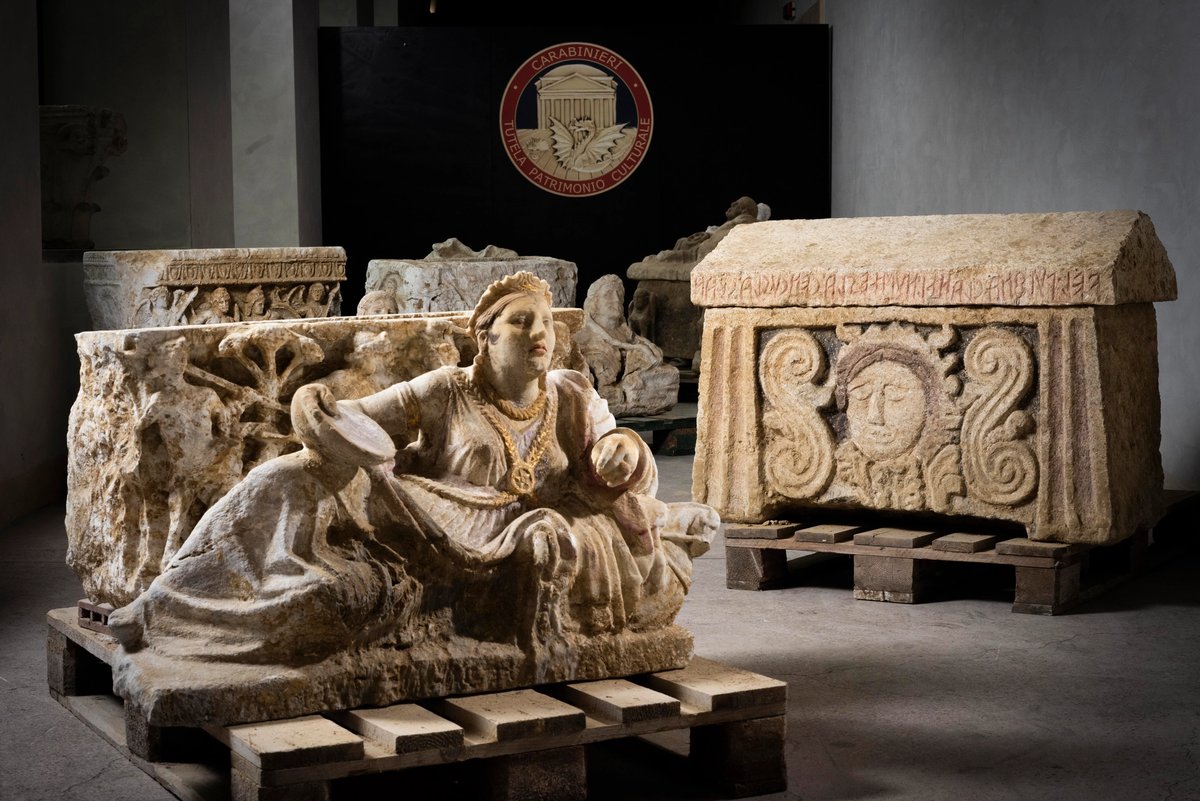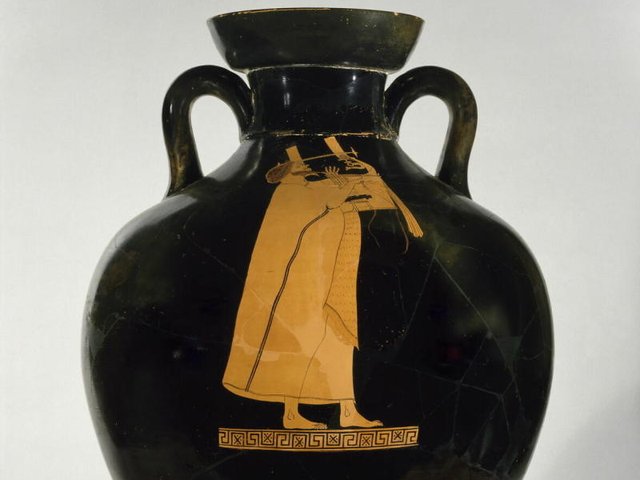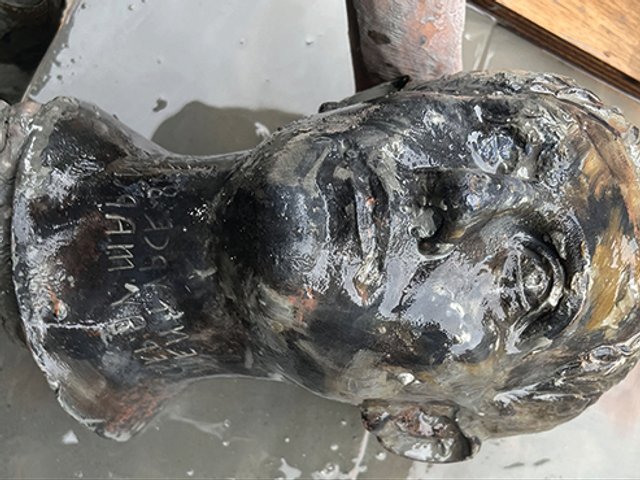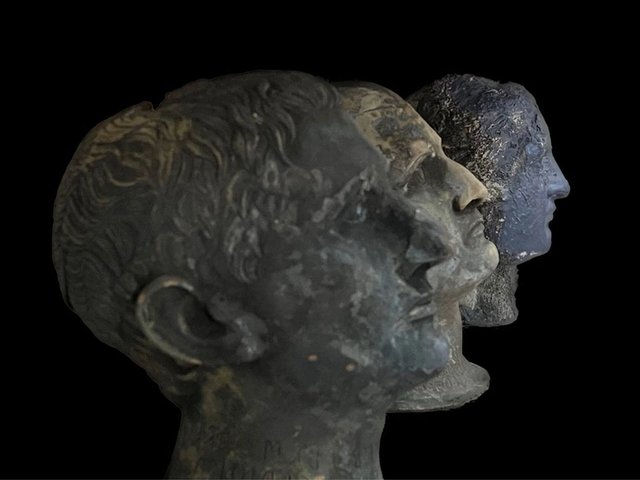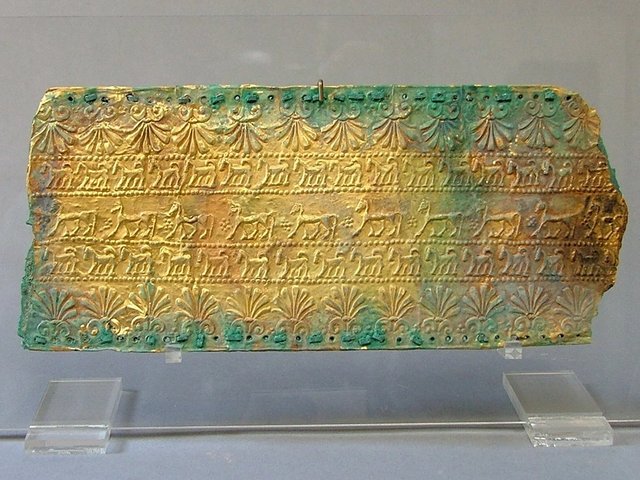Italian police have unveiled a haul of looted Etruscan treasures which were seized after thieves—“tomb raiders”—posted pictures of the objects online. The items were taken from an Etruscan necropolis in Città della Pieve, around 90 miles north of Rome.
“Experts believe this is one of the most important seizures of Etruscan artefacts ever made by investigators,” the prosecutor of Perugia, Raffaele Cantone, told The Times.
The looted objects include eight urns and two sarcophagi from a hypogeum, or underground tomb, belonging to an influential Etruscan family who lived between 300BC and 100BC, plus numerous funerary objects. Many of the objects depict “Etruscan princesses”, said a statement from the Italian Ministry of Culture.
“The funerary trousseau is particularly rich, consisting of both earthenware and metal furnishings and pottery, including four bronze mirrors, one of which [bears] the ancient she-wolf suckling Romulus, a balsamarium [bottle] still containing traces of perfume used in antiquity, a bone comb, and oinochoe [wine jugs] commonly used by Etruscan women during banquets and symposia,” said the ministry.
“Two people were identified as responsible, against whom [charges are being brought] for the crimes of theft and receiving cultural goods: eight Etruscan stone urns, two sarcophagi and related funerary items from the Hellenistic period, dating from the third century BC, were seized,” the ministry said.
The police investigation by the Carabinieri cultural heritage protection unit, a branch of Italy’s national police, began earlier this year after officers spotted the photos of the looted works for sale online.
Officials subsequently noticed the Etruscan family name “Pulfna” on the urns, linking the discovery to a collection of urns unearthed by a farmer tilling his land near Città della Pieve in 2015.
The investigation then “focused on a local entrepreneur, owner of an earth-moving equipment company who owned, among other things, land adjacent to that in which the hypogeum was discovered in 2015 (by the farmer)”, said the ministry.
“Having had confirmation of an imminent marketing of the goods on the clandestine antiques market, the investigating judge was asked for authorisation to carry out telephone interceptions. This activity was also supported by observation and shadowing services, with the use of a drone,” the ministry added.


